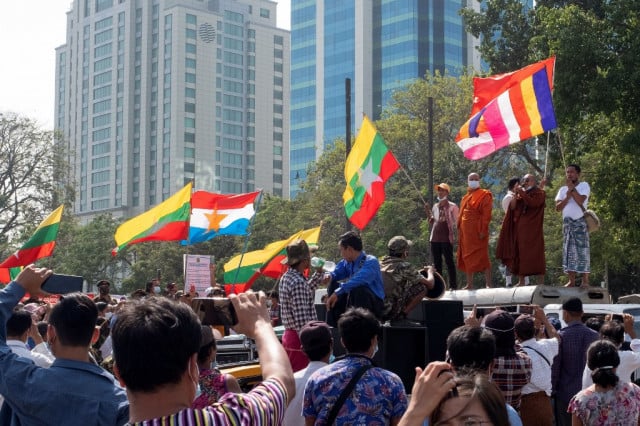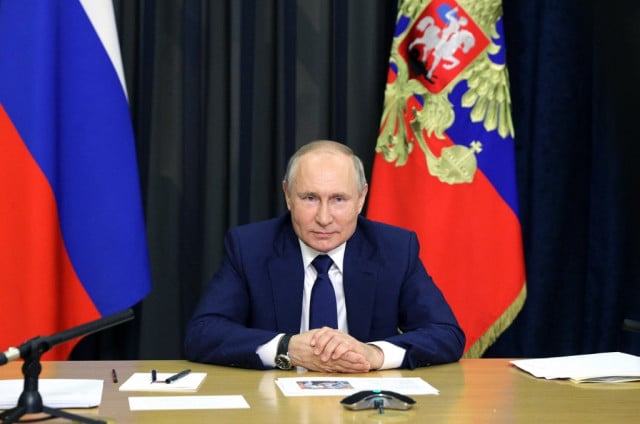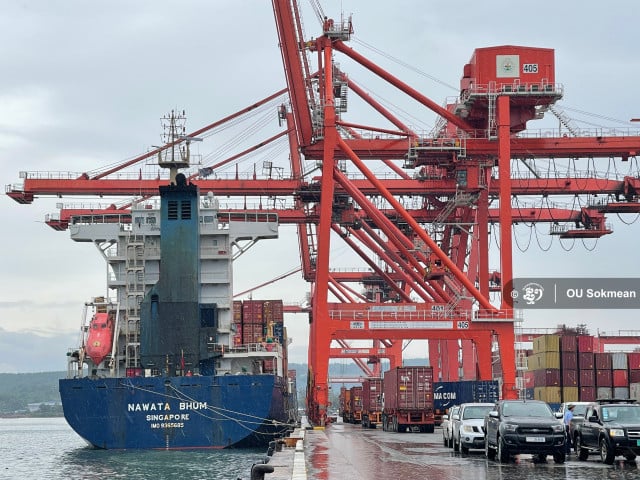Can ASEAN Help Solve Myanmar’s Domestic Political Crisis?

- Rim Sokvy
- February 12, 2021 4:04 AM
Early on February 1, tanks rolled across Yangon and Nay Pyi Daw, the main cities of Myanmar, as troops were deployed to block roads and traffic. Lines of communication and television were also cut off.
State Counselor Aung San Suu Kyi and other members of her National League for Democracy were taken into custody while all power was transferred to military leaders. Former general Myint Swe was declared acting president and a one-year of state of emergency was declared.
The coup was staged after the national election on 8 November. The military raised flimsy fraud claims after the NLD won a huge victory against the military-backed opposition party, Union Solidarity and Development Party (USDP).
As a member of the Association of Southeast Asian Nations (ASEAN), Myanmar’s domestic political crisis is extending beyond its physical boundary to ASEAN as a regional institution.
Since the creation of ASEAN in 1967, non-interference and consensus has been the basic framework of cooperation dubbed as the “ASEAN Way”. It has been praised for its efficient and face-saving approaches based on personal ties that are not carried out publicly. It is based on the understanding that each member has the capability and strength to deal with its own issues.
However, the “ASEAN Way” has been viewed differently by current state leaders in Southeast Asia. Some went further to claim that one should not even express opinions about domestic issues of other countries, while other countries besides ASEAN members could explicitly express opinions about the issues.
For instance, Myanmar’s military coup has been condemned by the US, Australia, Japan and other Western countries. Notably, the 15-member United Nations Security Council issued a statement calling for “continue support of the democratic transition in Myanmar” and the immediate release of all detainees.
On the contrary, ASEAN members are refraining from expressing opinions about the coup other than Malaysia and Indonesia, who are the founders of ASEAN and have the highest democratic level among ASEAN members. Brunei Darussalam also demonstrated concern as the current chair of ASEAN.
ASEAN could advocate for Myanmar to respect human rights and democracy as it did in the early phase of democratization in the country. For instance, during the democratization process in 2003, there was an attack on Aung San Suu Kyi and her supporters in her convoy that led to the death of 70 people related to the NLD while Suu Kyi was under arrest.
In response, ASEAN members encouraged Myanmar to relinquish its chairmanship of the ASEAN three years later to the next-in-line Philippines.
In the following year, ASEAN ministers made a statement of concern over the use of military forces to crack down on Buddhist monk demonstrations.
ASEAN urged Myanmar to act with restraint and seek a political solution through national conciliation and the democratization process instead of suspending its membership or kicking it out of ASEAN.
To restore its image internationally, Myanmar allowed more freedom of expression. In 2011, civil societies and freedom of expression have been permitted in Myanmar as the civilian leadership backed by the military came to power. It was given a chance to be the chair of ASEAN in 2013 as the political reform and progress has been made in Myanmar.
The unfolding situation in Myanmar of a military coup against Suu Kyi transferring all power to the military leaders shows that ASEAN has failed to maintain the democratization process. This will have at least three adverse implications for ASEAN as a whole. First, there is a step backwards for democracy and human rights which are incorporated in the ASEAN charter of 2008.
The rise of military leaders through coups could have spill-over effect on other ASEAN members as the new regimes gamble that they face nothing more serious than a wave of condemnation in the coming days and weeks.
As Sebastian Strangio argues, Myanmar’s military coup could be the consequence of no effective and timely response to the military coup in neighboring Thailand in 2019. This could lead to the possibility of military coup in other countries in Southeast Asia where the legitimate leaders could be ousted easily without military support.
Secondly, the failure to maintain the democratization process among its members, particularly Myanmar, would appear to prevent ASEAN from deepening its cooperation to become a regional institution like the European Union.
Thus, it still remains as the elite project which has little role and impact on the lives of the people in Southeast Asian region. As the democratization process remains a problem, authoritarian leaders in ASEAN will try to use sovereignty as a pretext to prevent others from expressing their opinions on domestic issues. Thus, democratization in each member state would play a critical role in which citizens can make their voices heard in ASEAN when the political institutions are democratic.
Third, ASEAN has played an important role in bringing many countries together, including the US, China, India, Australia, Japan and other key players. However, while the rivalry between China and the US is intense, ASEAN is vulnerable to its members’ foreign policy paths.
Some democratic countries would move towards the US and Western countries while some authoritarian regimes would embrace China as it focuses less on human rights and democracy.
For instance, although Thailand is an ally of the US, it has shown a tendency to move towards China after the 2019 military coup. In 2019, Thailand signed an agreement with China to buy arms including submarines, anti-ship cruise missiles, and amphibious ships.
In this regard, ASEAN should pay more attention to democracy and human rights issues in the region, particularly the current Myanmar political issue. ASEAN members can still adhere to the principles of ASEAN and ASEAN ways by encouraging Myanmar to pursue national conciliation in line with its constitution and the ASEAN Charter of 2008.
ASEAN chair Brunei should take the lead in helping to stabilize the political issue in Myanmar as in 2008 when there were border disputes between Cambodia and Thailand. At the time, Indonesia was in the chair and took the opportunity by providing good offices and encouraging Cambodia and Thailand to solve the issue through peaceful means rather than the exchange of bullets.
Sokvy Rim is a fresh graduate from the Department of International Studies, Royal University of Phnom Penh. He is currently an intern at Cambodian Education Forum and has interest in foreign affairs in Asia Pacific.















